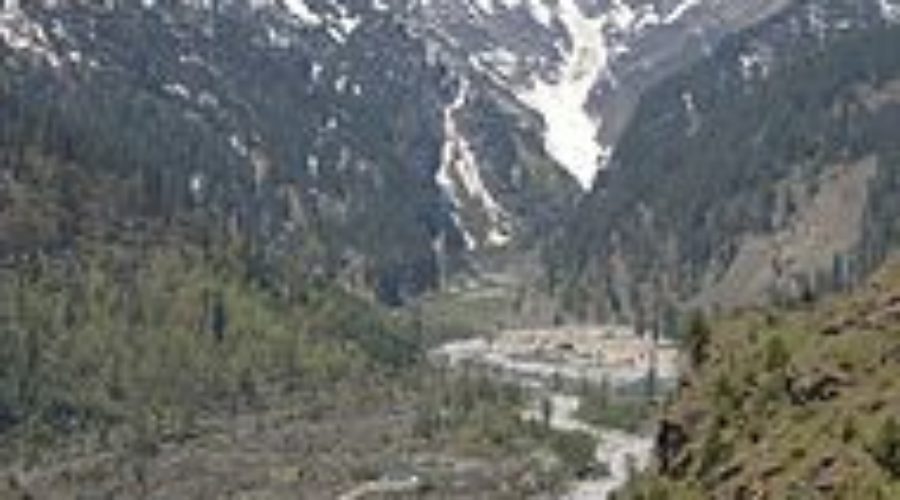Kullu
Kullu is a municipal council town that serves as the administrative headquarters of the Kullu district of the Indian state of Himachal Pradesh. It is located on the banks of the Beas River in the Kullu Valley about 10 kilometres north of the airport at Bhuntar.
Kullu Valley is a broad open valley formed by the Beas River between Manali and Largi. This valley is known for its temples and its hills covered with pine and deodar forest and sprawling apple orchards. The course of the Beas river presents a succession of magnificent, clad with forests of deodar, towering above trees of pine on the lower rocky ridges. Kullu valley is sandwiched between the Pir Panjal, Lower Himalayan and Great Himalayan Ranges.
The temperature in kullu valley in summer season is about 20 degree C. December and January during winter observe lowest temperatures ranging from −4 to 20 °C (25 to 68 °F), with some snowfall. Evenings and mornings are very cold during winters. Annual highest temperature in summer ranges from 24 to 34 °C (75 to 93 °F) during May to August. Months of July and August are rainy because of monsoon, having around 150 mm (5.9 in) rainfall monthly. Climate is pleasant in October and November.
The Kullu valley is known as the “Valley of the Gods” or “Dev Bhumi” due to many pilgrimage sites for Hindus, Buddhists and Sikhs alike. Kullu is known for its open valley meadows and scenic views of the Himalayan mountain range. Kullu area is known for Kullu shawl, made of many natural fibers including pashmina, sheep-wool and angora. The seven-day festival of Kullu Dussehra, a celebration of Avatar Lord Rama’s victory over the evil king Ravana. The festival takes place in the months of October or November, depending upon the Hindu calendar.





